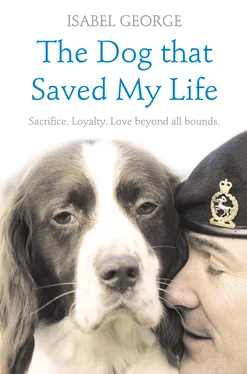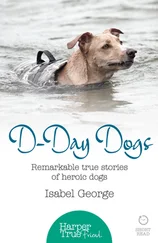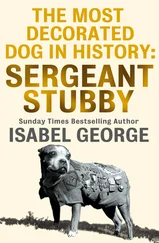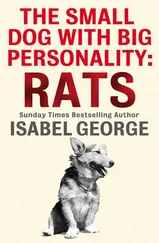The Governor and Commander-in-Chief of Hong Kong declines most absolutely to enter into negotiations for the surrender of Hong Kong, and takes this opportunity of notifying Lieutenant-General Takaishi Sakai and Vice-Admiral Masaichi Nimi that he is not prepared to receive any further communications from them on the subject.
Undeterred by British defiance, Lieutenant-General Sakai issued his own declaration in response:
On Thursday night, December 18, Japanese Imperial Forces will land upon the Island of Hong Kong at suitable situations between North Point and Lye Mun.
By late evening on 18 December 1941, the Japanese launched their attack on Hong Kong, coming thick and fast into the Lye Mun Gap. Boatload after boatload of soldiers in khaki landed, and they came screaming up the beach towards the Canadians, opening fire as they ran. There was no time for Fred Kelly to secure Gander in a pillbox. The onslaught was fast and furious, and every man reached for his rifle to fire at the running targets. The Royal Rifles held their section, sweeping the beach with heavy gunfire. Gander stayed close to Fred, who had no choice but to give the dog freedom. There was no time to do anything else. It was now Sergeant Gander’s time to prove his reputation as a ‘soldier dog’. He didn’t have a gun or a bayonet but his sheer size was enough to strike fear into the heart of the advancing army. As the Japanese streamed from their boats and onto the shore, the Canadian forces stood their ground. Rifles raised, they met the challenge of the Imperial Army. Then right in front of Fred and his comrades, Gander rose onto his hind legs. Like a bear, he ran at the Japanese soldiers, baring his teeth. Not even Fred Kelly could stop Gander now. The dog had seen his friends cut down by bombs and now by bullets and bayonets, and his loathing for the Japanese was instantaneous. He stood six foot tall on his hind legs, staring into the stunned faces of the Japanese soldiers as they ran screaming from the dog that they later called the ‘Black Devil’.
Fred thought Gander’s aggression must have stemmed from the memory of the day they arrived in Kowloon when two Chinese men had tried to abduct him. Until then he had trusted everyone. But that day he learnt there were people to be wary of and the picture he had in his mind matched the look of the soldiers facing his friends right now. For a while Gander waged his own personal war against the Japanese soldiers. If he was afraid, he did not show it. He was fearless and determined to repel the enemy and the Royal Rifles were proud to have him on their side. Time after time he ran in growling at the soldiers, who seemed too shocked to raise their rifles in the attack. Gander was a mascot but at that moment he was a brave soldier too. Gander remained determined to see off the enemy. That he remained alive seemed a miracle, even to the Riflemen serving at his side.
The Royal Rifles gave everything they had to try and stem the flow of the attack. From their slightly elevated position they had a clear view of the enemy and their Bren gun barrels were dangerously hot to the touch from the intense volume of fire. But the invaders kept coming and coming, screeching at the Canadians, with their long bayonets flashing. The Canadians were forced back and ‘C’ Force was soon in danger of being encircled by the Japanese. Withdrawing southwards to avoid entrapment, the men had another problem – the safe evacuation of the wounded. For those still standing, this was a priority. But by this time the men were also fighting a huge battle against exhaustion. For over a week they had been on continuous front-line duty and the effects of no sleep, no hot food and being constantly under attack were taking their toll on everyone. If they slept at all it would be in a weapon pit or where they collapsed, exhausted, on the roadside. All around, the injured lay amongst the dead, waiting to be taken to safety, but sometimes this could take hours and sitting in an almost constant hail of bullets left them vulnerable.
The remainder of ‘C’ Force had been forced back down the Lye Mun Road and into the Tai Tam Gap towards the Stanley area. All the time the men were using the sides of the road for shelter from the hail of grenades. The constant Japanese attacks made it difficult for the Royal Rifles to attend to the wounded, who now lay all over the road and in the ditches where they sought shelter. Fred Kelly, like his comrades, was exhausted from the fighting and Gander realized his friend needed his attention now. They lay together in a ditch, but not to rest. From there, Fred noticed another group – this time of wounded Canadians – stranded in the middle of the road. They were about 200 yards away and it looked as if they had been caught in a ferocious exchange of crossfire and were now unable to move in either direction. Then Fred saw Gander standing on the roadside beside them. He had felt the dog move away from him but had not realized where he was going.
‘Gander! Get down Gander. Down I said!’ Fred Kelly yelled at the dog, afraid that the Japanese would see him first and shoot him. But Gander had already seen his wounded friends and bounded towards them with his usual enthusiasm, only to see several Japanese soldiers moving in fast, their rifles raised in the direction of the wounded. Without hesitating, Gander ran towards them. Growling and baring his teeth, Gander sent them, running and shrieking, in the opposite direction, a look of terror in their eyes. Gander’s intervention gave his own men time to recover the wounded without losing ground. It was another brave show by the fearless Canadian dog.
Afraid that Gander would not be so lucky in the next onslaught, Fred took him just a few yards away to one of the pillboxes and secured it as best he could. The pillboxes were still being used as ammunition stores and shelter but most of the action was now being seen on the roadside. ‘Now you stay there buddy, until this mess is over…OK? I will come back for you,’ Fred said, as he patted Gander’s huge head for what he knew could be the last time. Fred was uneasy about leaving Gander this way but he was sure that the dog could not be that lucky again. Why the Japanese didn’t shoot him was a real puzzle. As they saw him as the ‘Black Devil’, maybe they were afraid to do so. No one knows, but it was clear that Gander was lucky to be alive.
Injured soldiers lay everywhere and as the fighting continued through the night, Gander remained on watch. In the early hours of 19 December, the Royal Rifles had begun to make their way into the hills on the south side of Hong Kong Island. Unable to get a clear shot on their target, the Japanese began tossing hand grenades up the hillside towards the men on the off chance they would wound anyone in the vicinity of the blast. But as fast as they were thrown up the hill the Canadians threw them back down before they exploded. And so the lethal game of ‘catch’ went on.
While the defending Royal Rifles engaged in the dangerous game with the grenades, Captain Garvey and six of his men were making their way into the hills to gain a better view of their target. At this moment a shell hit close by and all seven men were wounded in the blast. Unable to move forward, they immediately became the new target for the Japanese grenades. Blown in several directions by the blast, the men dragged themselves to a point at the side of the road where the captain lay. It was as if the Japanese were watching them, giving them time to move closer together before hitting them with a shower of grenades. One grenade fell just short of the group. One of the men reached for it and tossed it back. Another two grenades landed in the group and were tossed away by the Canadians. Then, as if in slow motion, the men watched a grenade drop into the middle of their group where no one could reach it. The clink of the metal hitting the road seemed to echo for just a moment. Rolling and smoking on the uneven road, the grenade came to a sudden stop. The men quickly located it and every hand moved towards the grenade but all were short. It was just out of reach. Transfixed in their moment of panic and disbelief, they didn’t see Gander approaching from behind. No one saw the dog move in. He came from nowhere and, as if he knew what would happen next, he streaked in. Feeling the breeze from the dog’s massive body on the move, the men watched in awe as Gander rushed in and picked up the hissing grenade in his mouth. He ran for several yards away from the wounded defending Canadians until the grenade detonated in his mouth, killing him instantly.
Читать дальше












